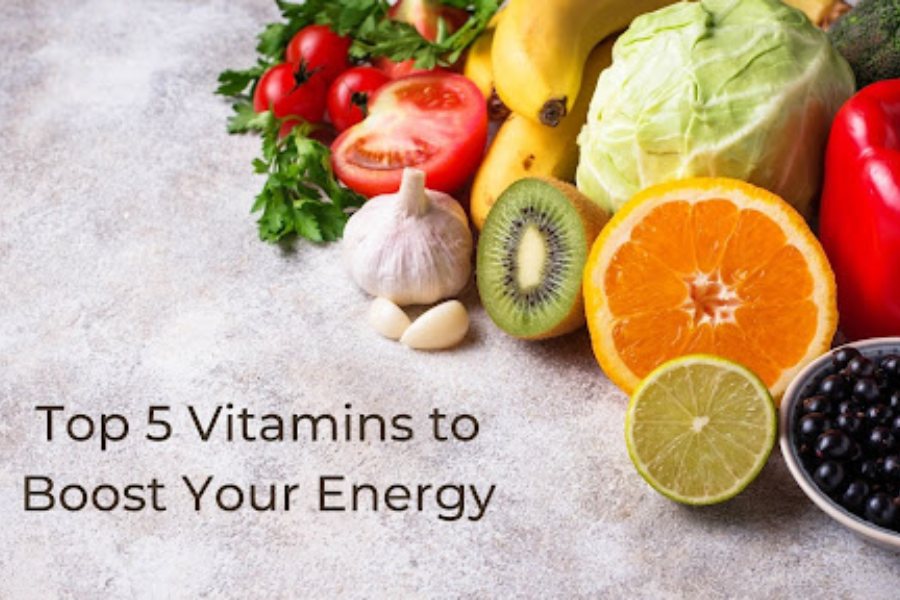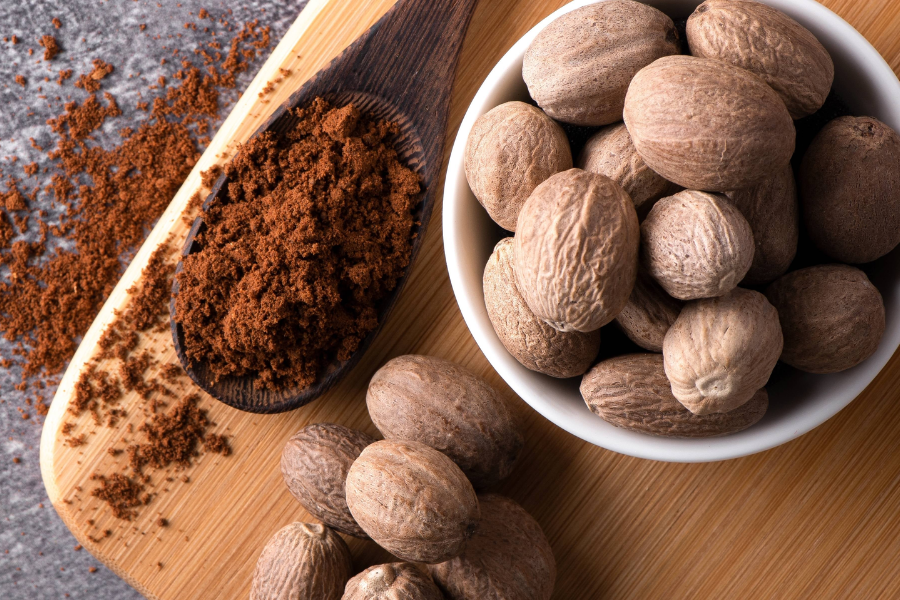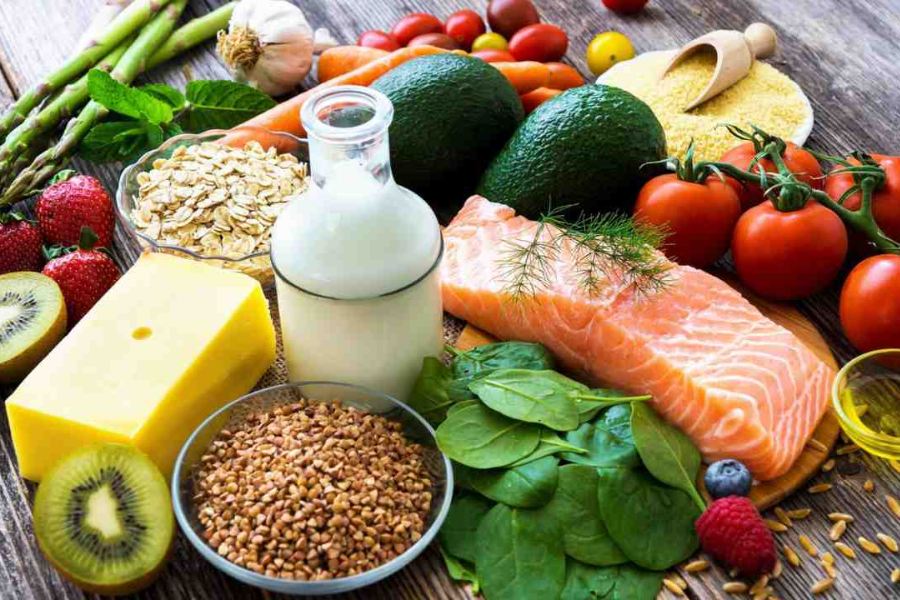Introduction
In today’s fast-paced environment, maintaining strong energy levels is crucial for productivity, focus, and overall wellbeing. Many people turn to vitamins to boost their stamina naturally, but what vitamins are best for energy? This guide explores how different vitamins impact your energy levels, the best sources, and how to use them effectively to feel your best every day.
Why Energy Levels Matter
Energy is the foundation of a healthy and active life. Without sufficient energy, physical performance declines, cognitive function suffers, and everyday tasks feel overwhelming. Fatigue can stem from poor nutrition, stress, lack of sleep, and underlying health conditions. By ensuring the right intake of essential vitamins, you can support your body’s natural energy production processes.
How Vitamins Influence Energy
Vitamins do not directly supply energy (calories), but they are vital cofactors in the body’s metabolic pathways that convert food into usable energy. A deficiency in key vitamins can cause fatigue, weakness, and decreased mental clarity.
Key Vitamins for Boosting Energy
Vitamin B12 (Cobalamin)
Role in Energy Production
Red blood cell production, brain function, and DNA synthesis all depend on vitamin B12. It helps convert food into glucose, which the body uses for energy.
Food Sources
- Meat (especially liver)
- Poultry
- Fish (salmon, tuna)
- Dairy products
- Fortified cereals
Vitamin B6 (Pyridoxine)
How It Supports Metabolism
Vitamin B6 helps the body metabolize proteins, fats, and carbohydrates, aiding in the efficient release of energy from food. Additionally, it promotes the synthesis of neurotransmitters, which enhances brain function.
Best Dietary Sources
- Chickpeas
- Bananas
- Potatoes
- Chicken breast
- Fortified cereals
Vitamin B1 (Thiamine)
Importance for Cellular Energy
Thiamine plays a vital role in converting carbohydrates into energy and supports nervous system health. It’s essential for proper muscle function and heart health.
Deficiency Symptoms
- Fatigue
- Irritability
- Muscle weakness
- Poor memory
Vitamin B2 (Riboflavin)
Role in ATP Production
The body uses adenosine triphosphate (ATP) as its main energy source, and riboflavin aids in its synthesis. It also protects cells from oxidative stress.
Natural Sources
- Milk and dairy products
- Eggs
- Lean meats
- Green leafy vegetables
- Nuts
Vitamin B3 (Niacin)
Energy Metabolism Benefits
Niacin aids in converting food into energy and is essential for healthy skin, digestion, and nerve function. It is also used to increase cholesterol levels.
Recommended Intake
- Men: 16 mg/day
- Women: 14 mg/day
Good food sources include turkey, peanuts, mushrooms, and fortified bread.
Vitamin B5 (Pantothenic Acid)
Supports Adrenal Function
Coenzyme A, which is essential for fatty acid metabolism and energy production, is synthesised by vitamin B5. It also supports adrenal gland health, which affects stress and energy levels.
Foods High in B5
- Avocados
- Sweet potatoes
- Eggs
- Mushrooms
- Broccoli
Vitamin B9 (Folate/Folic Acid)
Red Blood Cell Production
Folate is essential for creating new red blood cells, which transport oxygen throughout the body, helping maintain energy and vitality.
Best Sources
- Leafy greens (spinach, kale)
- Citrus fruits
- Beans
- Fortified grains
Vitamin C
Combats Fatigue & Supports Iron Absorption
Vitamin C enhances iron absorption from plant-based foods, preventing iron-deficiency anemia—a major cause of fatigue. It also fights oxidative stress that can drain energy.
Citrus and Other Rich Foods
- Oranges
- Strawberries
- Bell peppers
- Kiwi
- Brussels sprouts
Vitamin D
Link to Energy and Mood
Vitamin D is often called the “sunshine vitamin” because our bodies produce it when exposed to sunlight. Low vitamin D levels are linked to fatigue, depression, and poor immune function.
Sunlight vs. Dietary Sources
- Sunlight (15–30 minutes/day)
- Fatty fish (salmon, mackerel)
- Fortified dairy and plant milks
- Egg yolks
Iron (Not a Vitamin but Essential for Energy)
The production of haemoglobin, which carries oxygen to cells, depends on iron. Without enough iron, you can experience significant fatigue and weakness.
Iron-Rich Foods
- Red meat
- Lentils
- Spinach
- Quinoa
- Tofu
Other Nutrients That Support Energy
Magnesium
More than 300 enzyme systems that control biological activities, including the synthesis of energy, depend on magnesium. Low magnesium can result in tiredness and muscle cramps.
Coenzyme Q10 (CoQ10)
CoQ10 is a powerful antioxidant involved in producing cellular energy. As people age, their natural levels decline, which could lead to weariness.
Omega-3 Fatty Acids
By lowering inflammation and enhancing blood flow, omega-3 fatty acids indirectly promote increased vitality and mental clarity.
Signs of Vitamin Deficiencies Affecting Energy
- Fatigue: Constant tiredness despite adequate rest.
- Brain Fog: Difficulty concentrating or thinking clearly.
- Weakness: Reduced physical strength or endurance.
Best Ways to Get Energy-Boosting Vitamins
Whole Foods vs. Supplements
Whole foods are the best source of vitamins because they also provide fiber, antioxidants, and other nutrients. Supplements can be useful for those with dietary restrictions or medical conditions but should not replace a balanced diet.
Daily Recommended Intakes
Follow the recommended daily allowances (RDAs) for each vitamin to avoid deficiencies and maintain optimal energy levels.
Potential Risks of Over-Supplementation
Side Effects of Excess Vitamins
Taking high doses of certain vitamins (like B6 or niacin) can cause side effects such as nerve damage, skin flushing, or gastrointestinal distress.
When to Consult a Doctor
If you’re considering supplements or experiencing persistent fatigue, it’s essential to consult a healthcare provider for personalized advice and possible testing.
Conclusion
What vitamins are best for energy? Primarily, the B-vitamin family, Vitamin C, Vitamin D, and Iron are critical players in maintaining high energy levels and overall vitality. A diet rich in whole foods, such as fruits, vegetables, lean meats, and whole grains, naturally contains most of these components. Supplements can be helpful but should be used wisely to avoid side effects. If you’re experiencing ongoing fatigue, consulting a healthcare professional is your best course of action.
FAQs
1. Which vitamin provides the most energy instantly?
By supporting the production of red blood cells and the movement of oxygen, vitamin B12 is a very powerful tool for increasing energy levels instantly.
2. Can taking vitamins really improve my energy?
Yes, correcting a vitamin deficiency can significantly boost your energy levels and mental clarity.
3. How quickly do energy vitamins work?
Depending on the deficiency, you might notice improvements within a few days to a few weeks after starting supplementation.
4. Are natural food sources better than supplements?
Yes, whole foods are typically better because they offer a variety of essential nutrients, not just isolated vitamins.
5. Should I take a multivitamin for energy?
A multivitamin can help, especially if your diet lacks variety, but it’s best to focus on a balanced diet first.
For more health tips and wellness advice, visit Tech.Mex.com.



